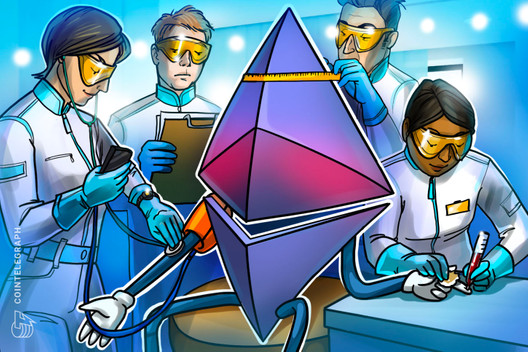Ethereum devs discuss gas optimizations, but it will probably be too little too late
Developers see the problem, but there is little they can do right now.
An Ethereum All Core Devs call was held on Friday to discuss a variety of Ethereum Improvement Proposals as gas fees on the network remain historically high.
The agenda included several discussion points on high gas prices and ways to mitigate the issue. Alexey Akhunov, an independent Ethereum researcher, opened with a comment on the existence of gas tokens and how they could push prices higher than normal.
He highlighted how the mempool is often filled with transactions bidding a certain gas price to mint these tokens, and compared this approach to order book exchanges where traders fish for dips with low price orders. But according to him, the fact that gas bidding orders cannot be easily cancelled could mean that prices remain artificially high as any dip is bought by default.
While a proposal to eliminate the refund mechanism that underpins the gas tokens was floated around, Akhunov acknowledged that the magnitude of gas token minting can only account for about 2% of current gas usage. This would suggest that any negative contribution they might have could be limited in size, but he said that he would need to find more data before formally discussing options to eliminate this mechanism.
The remaining topics were less immediate in terms of gas price discussion. One of them included a recently introduced EIP championed by Ethereum co-founder Vitalik Buterin and core developer Martin Swende.
Filed as EIP-2929, the proposal substantially increases gas costs for certain storage operations. However, this is being done as a protection against potential Denial of Service attacks and the specifics of the change mean that some operations could actually become cheaper. Nevertheless, Akhunov was skeptical about some of the more complex changes and exemptions that this proposal entailed, suggesting to continue discussion on these finer points.
Raising gas costs appears counterintuitive in the current environment, but doing so could help Ethereum developers feel more confident about future gas limit increases. The strong threat of DoS attacks previously held back more aggressive increases from being implemented.
A further EIP that could have the strongest impact on the general user experience is EIP-2711. The proposal could let one account pay for someone else’s transaction fee, create batched transactions that are guaranteed to be executed in the order they were submitted, and an automatic time limit for transactions hitting the mempool.
The latter change could also result in gas savings, as such systems are already implemented at an application layer on platforms like Uniswap, developer Micah Zoltu said. Doing so through smart contracts means that the transaction will still be included as a failed transaction, while under this proposal it would simply be removed after expiry.
However, the proposal was only discussed on an introductory basis and no decisions have yet been made.
Overall, these changes are being discussed primarily for inclusion in the Berlin hard fork, originally expected to come this summer. However, many proposals still need to be tested and approved, suggesting that the hard fork is still some time away.
For the time being, the Ethereum fee market will remain entirely at the mercy of surging demand.




